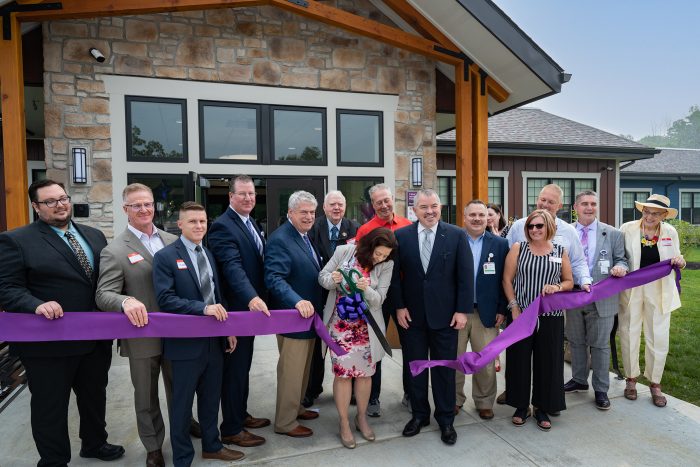Jason Snyder
Life Unites Us to Host Webinar On BH, SUD Services for Older Pennsylvanians

Life Unites Us is hosting a webinar at 12:00 pm on Tuesday, July 25, titled “Uniting Provider Communities: Improving Access to Behavioral Health and Substance Use Disorder Services for Older Pennsylvanians.” The webinar will cover Pennsylvania aging programs and services, the integration of behavioral health and addiction services, their delivery methods, and available resources within the aging network. Registration is available.
Life Unites Us is a collaboration between the Pennsylvania Department of Drug and Alcohol Programs, the Douglas W. Pollock Center for Addiction Outreach and Research at Penn State Harrisburg, and the nonprofits Shatterproof and The Public Good Projects. It aims to end stigma and improve access to addiction treatment and recovery by bringing together organizations fighting the opioid epidemic.
DDAP Announces New Training on Anxiety & SUD Treatment Strategies
The Pennsylvania Department of Drug & Alcohol Programs (DDAP) is offering an online training module “Anxiety Disorders & Substance Use Disorder (SUD): Research-Based Strategies & Treatments.” The training covers effective treatments for individuals with co-occurring anxiety and substance use disorders, including cognitive-behavioral therapy, acceptance and commitment therapy, and mindfulness meditation. It includes interactive elements and takes approximately 4 hours to complete. To access the training, create or log in to your account on the TrainPA website and search for “PA-DDAP: Anxiety Disorders & SUDs” under courses. You can email DDAP’s training inbox or call 717-736-7452 for inquiries.
OMAP, OMHSAS Issue Joint Medical Assistance Bulletin on Street Medicine
The Department of Human Services (DHS) Offices of Medical Assistance Programs (OMAP) and Mental Health and Substance Abuse Services (OMHSAS) issued a Medical Assistance (MA) bulletin today detailing MA payment for street medicine.
This bulletin informs MA providers that DHS will cover certain services for MA beneficiaries experiencing unsheltered homelessness in their lived environment, known as street medicine. Covered services include physical and behavioral health services, such as primary care, vaccinations, wound care, counseling, and diagnostics in the lived environment. The bulletin applies to enrolled physicians, nurse midwives, nurse practitioners, physician assistants, psychologists, mobile mental health treatment providers, and outpatient practitioners in mental health. Managed care providers should contact their managed care organization(s) for billing questions.
The complete bulletin can be viewed here as well as on the DHS website.
DDAP Announces New Available Trainings
The Pennsylvania Department of Drug and Alcohol Programs (DDAP) is organizing various training sessions throughout the state. View the schedule for information about the dates, locations, and available courses in your region. Trainings will start on August 8, 2023 and include Case Management Skills, Ethics in Prevention, Screening and Assessment, and more. To attend these courses, you need to register through DDAP’s Training Management System. Each course requires separate registration, and seats are assigned on a first-come, first-served basis. If you have any inquiries, contact DDAP’s Training Section via email.
DDAP Issues Policy Bulletin Regarding Manual Modifications
The Pennsylvania Department of Drug and Alcohol Programs (DDAP) on Wednesday issued Policy Bulletin 23-01, which outlines modifications to the DDAP Fiscal Manual, Prevention Manual, Operations Manual, Case Management & Clinical Services Manual, and the Substance Abuse Prevention & Treatment Block Grant Provisions. The modifications cover various topics, including funding strategies, media restrictions, outcome measures, licensure requirements, treatment definitions, telehealth assessments, staff qualifications and training, and confidentiality of information. The updated documents are available on the DDAP website, and the bulletin applies to all single county authorities and their contracted providers. The changes are effective immediately.
RCPA Member UPMC Western BH Ribbon Cut on Twin Lakes Expansion, Adding Capacity for Addiction Treatment
Leaders at Twin Lakes and UPMC on Thursday celebrated a years-in-the-making, $16.2 million expansion at Twin Lakes that added space for 24 additional patients inside an all-new 19,300-square-foot building. RCPA Director of SUD Treatment Services, BH Division Jason Snyder was in attendance at the ribbon cutting on June 29, along with RCPA Board Chair-Elect Noreen Frederick of University of Pittsburgh Medical Center. Deborah Brodine, president of UPMC Western Psychiatric Hospital and the Behavioral Health Services Network of UPMC, is pictured in the center, holding the scissors. View the article here.
Senate Confirms Dr. Latika Davis-Jones As DDAP Secretary
The Pennsylvania Senate has confirmed Dr. Latika Davis-Jones as Secretary of the Department of Drug and Alcohol Programs (DDAP). As secretary, Davis-Jones leads the Commonwealth’s efforts to reduce substance use disorder (SUD) and problem gambling disorder, with a large focus on expanding access to and increasing the quality of SUD treatment.
Before serving in the Shapiro administration, Secretary Davis-Jones was Senior Director of Behavioral Health at Highmark Wholecare, a Medicaid managed care organization in Pittsburgh. Prior to that, she served as Allegheny County’s Single County Authority Administrator.
Read DDAP’s official press release.
DDAP Issues Licensing Alert on Calculating Counselor Ratios for Nonhospital Residential SUD Treatment
Tobacco Recovery Lunch-and-Learn Set for July 27

Tobacco-related illness is a leading cause of death for people in substance use disorder and mental health recovery. In response, the Pennsylvania Recovery Organizations Alliance and the State Tobacco Recovery Free Initiative are hosting a virtual tobacco recovery lunch and learn at 12:00 pm Thursday, July 27, for anyone interested in tobacco recovery.
Registration is required. Registrants will receive a confirmation email containing information about joining the meeting.
Recognizing the range of tobacco and nicotine addiction severity, this session will teach participants about individualized replacement coping skills. It also will help participants to define the physical, behavioral, and emotional reasons individuals smoke and develop an individualized approach to managing tobacco-free living.
Discussion will focus on:
- Understanding the nature of tobacco addiction;
- Ways to relieve craving and withdrawal;
- Proactive strategies to adapt to behavior change; and
- Identification of how to support family members who use tobacco.
Tony Klein, MPA, NCACII, is the presenter. He has more than 30 years of administrative and clinical experience in behavioral health services and is known for his work as an advocate for addressing tobacco use disorder by using evidence-based practice guidelines anchored in solution-focused recovery principles.














